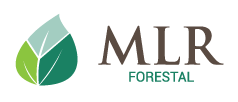News
Fine and aroma cocoa: the most valued “flawless” beans in the world
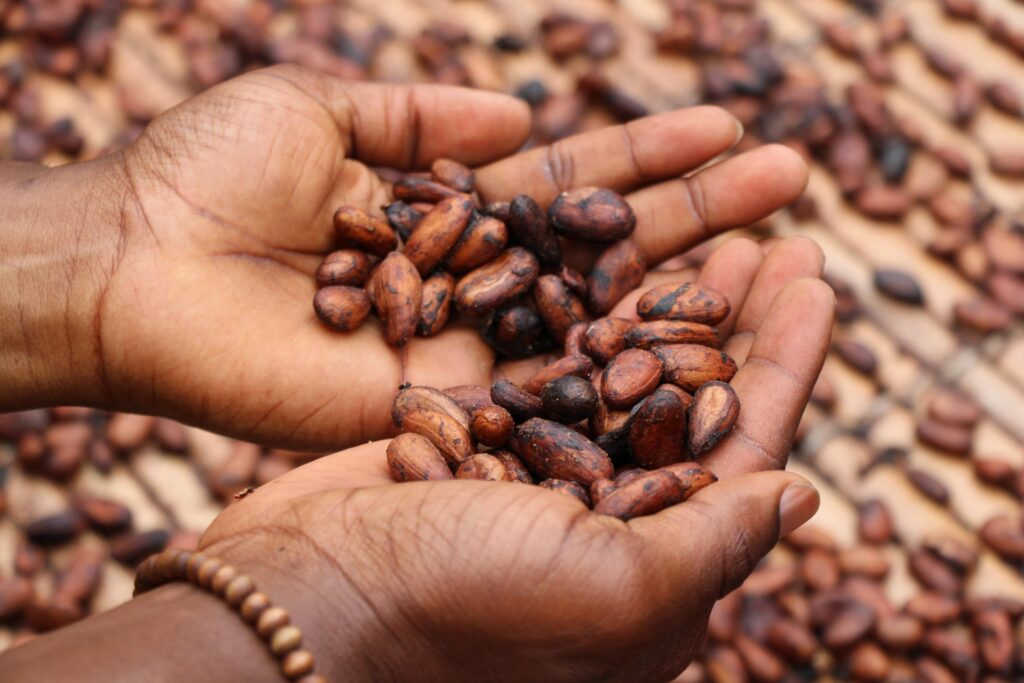
Cocoa is so relevant at a global level that, in 1973 and with the support of the United Nations, the International Cocoa Organization (ICCO) was created. Currently, 51 producer and consumer countries belong to the organization, including Nicaragua, which entered the list of producers of fine cocoa in 2015.
It was in the ICCO where the definitions of fine or aroma cocoa, also called fine or flavor, emerged to differentiate this higher quality bean from the lower quality (“bulk” or “ordinary”).
The ICCO website notes that fine and flavor cocoa are produced from Criollo or Trinitario tree varieties, while bulk (or coarse) cocoa comes from Forastero trees. There are, however, known exceptions to this generalization. Trees of the National variety in Ecuador, considered of the Forastero type, produce fine or aroma cocoa.
On the other hand, cocoa beans from Cameroon, produced by trees of the Trinitario type, and whose cocoa powder has a distinctive red color, have so far been classified as bulk cocoa beans.
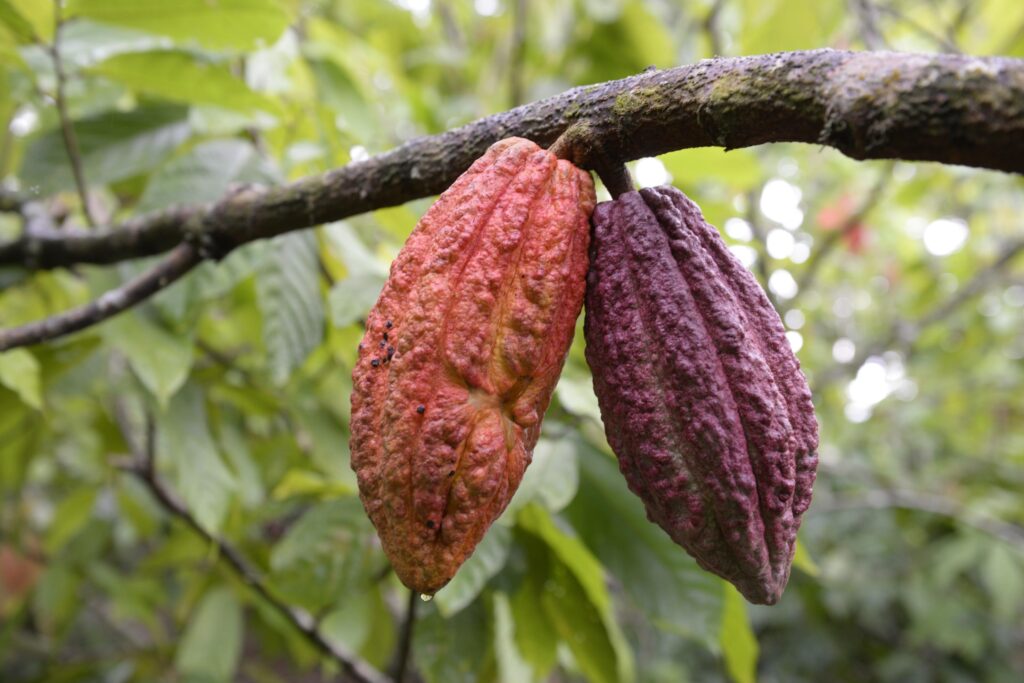
An important fact is that the difference between fine and aroma cocoa and bulk cocoa is in the flavor and not in the other quality factors.
Fine flavors include fruit (fresh and golden, ripe fruit), floral, herbal and woody notes, nutty and caramel notes, as well as rich and balanced bases of chocolate.
A controversial and recently updated definition
The ICCO acknowledges that its definition of fine and flavor cocoa “remains controversial”, as there is no single universally accepted criterion that can determine the quality of cocoa.
Typically, a combination of the following criteria is used:
- Genetic origin of planting material
- Morphological characteristics of the plant
- Chemical and flavor characteristics of the cocoa beans produced
- fermentation degree
- drying
- Acidity
- strange flavors
- Internal mold percentage
- insect infestation
- Percentage of impurities.
To define it, quality evaluators award or subtract points, depending on the condition of the cocoa beans in relation to the above criteria. However, the measurement of some of these criteria is subjective. It was for this reason that an ICCO Expert Working Group on Fine and Flavor Cocoa worked from October 2017 to April 2018 and came up with the following definitions :
Fine Cacao: It has no flavor defects and provides a complex flavor profile that reflects the experience of the producer and the environment where it is grown, fermented and dried. Fine cocoa that meets these basic criteria may also offer significant genetic diversity as well as historical and cultural heritage.
Aroma Cocoa: Has few or no flavor defects and provides valuable flavor or aroma characteristics. This type of cocoa meets basic quality criteria and can also offer significant genetic diversity, as well as historical and cultural heritage.
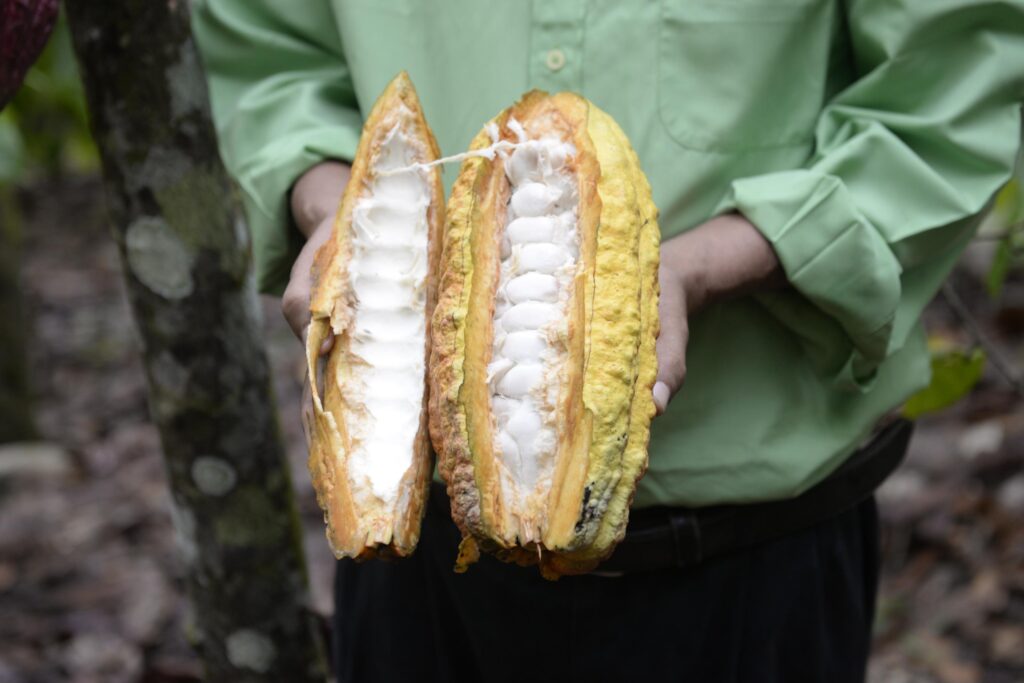
Nicaragua and cocoa
According to the Central Bank of Nicaragua (BCN) the three varieties of cocoa (Forastero, Criollo and Trinitario), are produced in different areas of the country:
- Caribbean: Nueva Guinea, Blufields, Kukra Hill and the Las Minas area (Siuna, Bonanza and Rosita)
- Also in the northern area: Waslala, Río Coco,, Matagalpa and Jinotega.
- Rivas
This crop may have a greater push in areas of the North Caribbean and South Caribbean, where according to APEN the areas offer great opportunities for its development thanks to their suitable soils and favorable environmental conditions.
Precisely in the municipality of Siuna, in the Autonomous Region of the North Caribbean Coast of Nicaragua, the MLR agroforestry project is being developed with teak and cocoa plantations shaded by teak. Currently there are 1,239 hectares planted with cocoa shaded with teak. The MLR Forestal variety is a high-yield fine and aroma cocoa and has international certifications (FSC Certificate from the Forest Stewardship Council and Certification of Sustainable Agriculture from the Rainforest Alliance) that guarantee the sustainable and comprehensive management of production at all stages. .
The MLR process to obtain fine and aroma cocoa
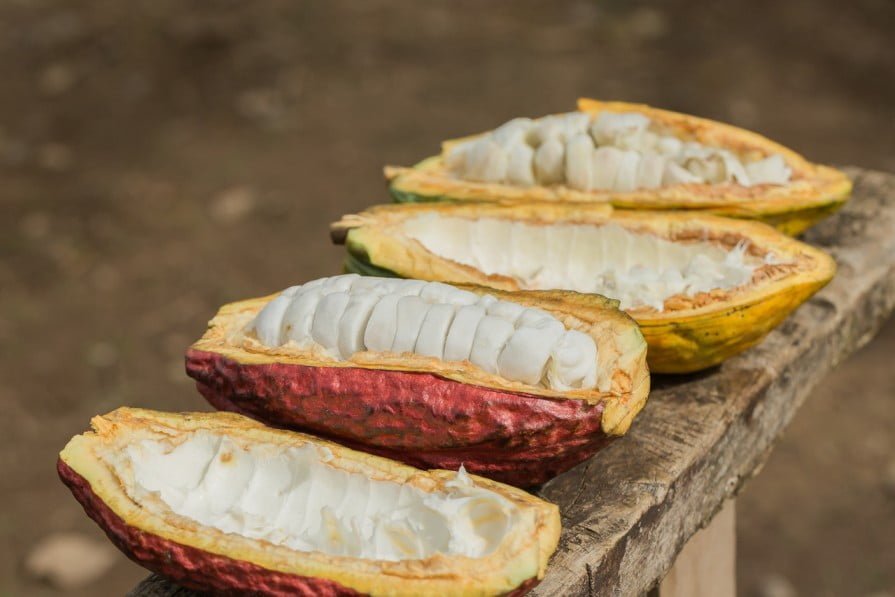
Healthy and mature cobs are harvested,
guaranteeing the quality to be processed.
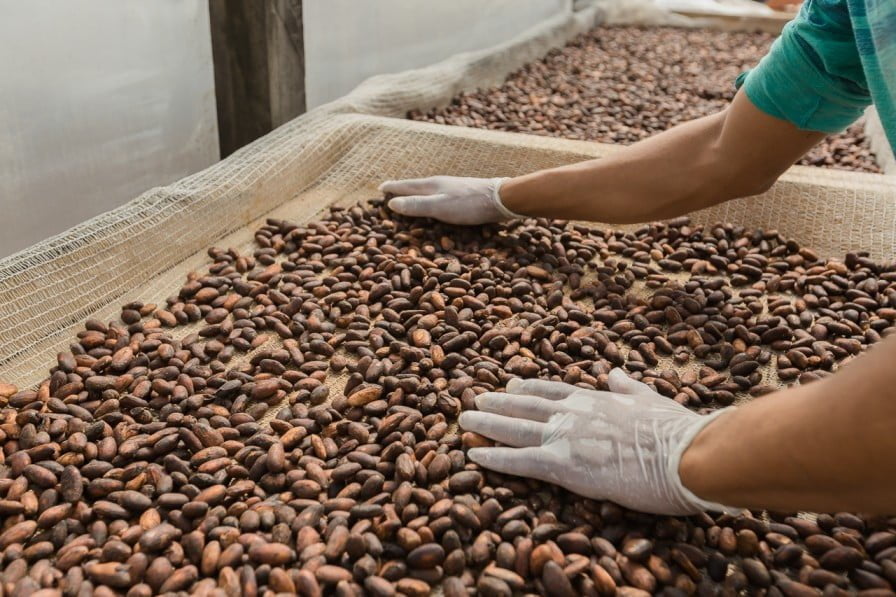
The grains are fermented and dried with protocols
carefully elaborated that guarantee the
obtaining a fine cocoa and aroma.
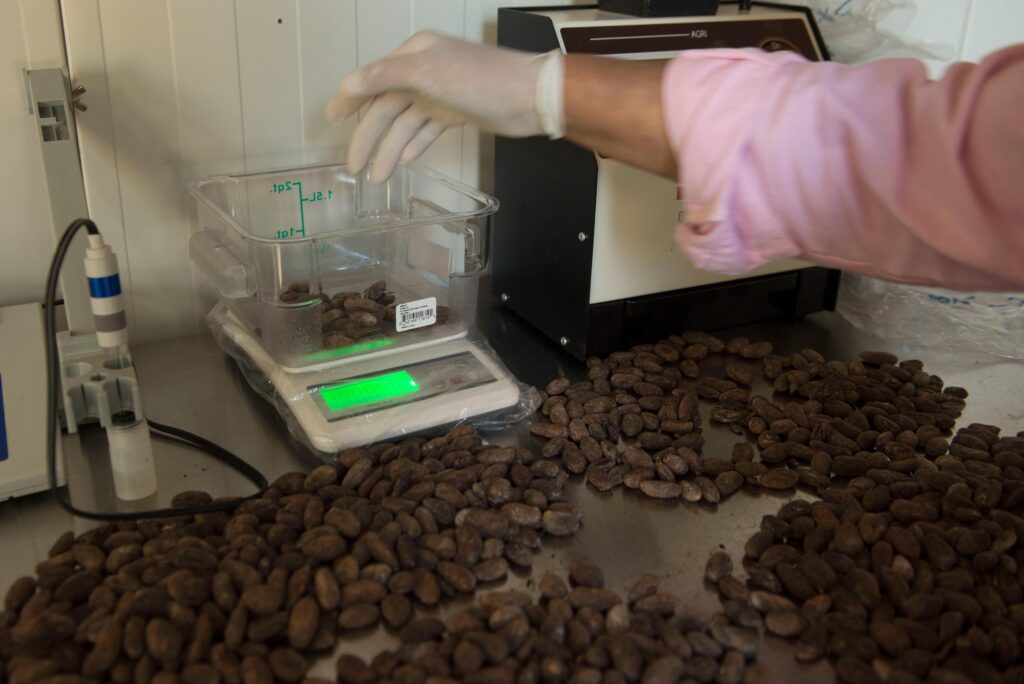
In the MLR cocoa laboratory, the standards of excellence of the grain are ensured, its physical quality is verified with grain cut tests and finally the organoleptic tests are carried out to define the flavors.
Share
